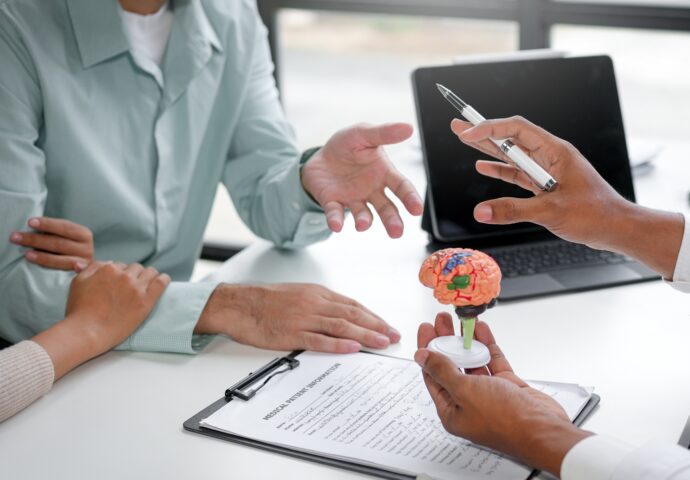Tips on Preparing for a Neurologist Appointment

Parkinson’s Patient Moves Freely Again After World-First Implant of Lab-Grown Cells into his Brain
29th July 2024
High Caffeine Consumption Linked to Changes in Dopamine in Parkinson’s Patients
29th July 2024Tips on Preparing for a Neurologist Appointment

Tips on Preparing for a Neurologist Appointment
Most people living with Parkinson’s see their neurologist every three to six months initially, then every six to 12 months. However, if you are experiencing problems with your Parkinson’s or its treatment, more frequent visits may be required.
As you are no doubt learning firsthand, Parkinson’s is a complex disease that is difficult to diagnose and challenging to treat.
That is why you need to get the most out of every visit to your neurologist who is bound to be busy, likely needs to ask a lot of questions and will often share complex information with you.
Below is a helpful checklist for making the most of your appointment.
Prior to Your Appointment
- Prepare a list of all of your current medications – not just Parkinson’s medications. Include other routine medications like anti-inflammatories, blood pressure and cholesterol medications, and even vitamin and mineral supplements.
- Also, when listing your Parkinson’s medications, make a note of the times when you take them.
- A week or two before your appointment, make notes of your symptoms to share with your neurologist. In addition to Parkinson’s symptoms, include any other health complaints that may or may not be related – particularly your moods.
If a symptom is hard for you to describe, you or your caregiver could take a video on your smartphone to show your neurologist,
Also note any other important things you think your neurologist needs to know since your last visit – such as surgeries, falls, hospital stays, changes in health, or changes in your living situation.
- Prepare a list of questions and concerns you would like to address during your appointment. Rank them in order of importance to you, so if you run out of time you will at least have covered off the most significant questions.
- Take somebody with you to the appointment. It is useful to have another set of ears there so you can later debrief and compare notes to clarify your understanding of the information which was shared.
Both you and your appointment partner should make notes during the session to ensure a complete record of the information. If you ask permission, you may also be able to record the discussion on your smartphone
Before You Leave your Appointment
- Be sure you understand your treatment plan and any changes made to it – particularly medication changes. If new medication has been added, be sure you know what the medication is supposed to do, how much to take and when, potential side effects and what to do if they occur.
- If you don’t understand something, it is important to ask then and there. Ask about anything, even the embarrassing topics. Your relationship with your neurologist is likely to last a long time and full disclosure and trust are important.
- Make your next appointment before you leave the clinic because neurologists are usually booked out months in advance. Make a note of the day and time of your future appointments.
Many people find it useful to schedule their appointments at a time of day just before their regular medication time. Then your neurologist can observe you when you are closest to your Off phase, and issues will be more obvious.
Following Your Appointment
- As soon as possible after your neurologist appointment, sit down with the person who accompanied you and literally compare notes to establish a common understanding of what was said and recommended for you.
- If anything remains unclear following your appointment, you can seek further information from the Parkinson’s NSW InfoLine: Phone 1800 727 567.



